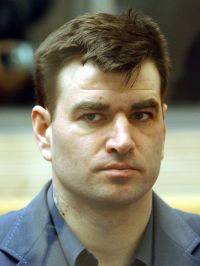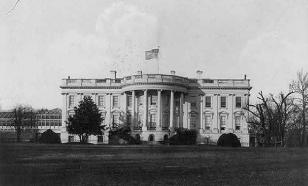40-year sentence for Milosevic's hitman upheld

Serbia's Supreme Court has upheld the maximum 40-year prison sentence for Slobodan Milosevic's paramilitary commander, convicted of the 2000 killing of a former Serbian president and the attempted assassination of another political foe.
After a three-month deliberation, the court on Monday rejected an appeal filed by Milorad Ulemek's lawyers, who alleged that the original trial had been legally flawed, Belgrade media reported Tuesday.
Supreme court spokeswoman Vesna Dabic confirmed to The Associated Press on Tuesday that judges voted on a ruling, but said it must be kept secret until it is officially published by the court. She refused to specify what the judges ruled or when it would be published.
Ulemek - former head of Milosevic's elite Red Berets paramilitary unit set up during the wars in Bosnia and Croatia in the 1990s - was sentenced in 2005 to 40 years in prison for the murder of former President Ivan Stambolic and for a failed attempt to kill Vuk Draskovic, an opposition leader at the time and, until recently, Serbia's foreign minister.
The supreme court ruling, when made official, means that Ulemek, already in prison, can no longer appeal the sentence, which has become legally binding.
On May 23, Ulemek was sentenced separately to another 40 years in jail for the 2003 assassination of Zoran Djindjic, Serbia's first democratic prime minister since World War II.
Stambolic, Serbia's president until Milosevic displaced him in 1988, was kidnapped in August 2000 while he was jogging in a Belgrade park.
He was taken by Ulemek and his men to a forest in northern Serbia, killed with a shot to the back of the head, and then dumped in a shallow, lime-covered pit, according to the court conviction.
"Stambolic, blindfolded in front of the pit, suffered extreme pain and fear," the conviction said.
His body was found in 2003 during a police sweep following the assassination of Djindjic.
The attack on Draskovic, in which a bullet slightly grazed his ear, took place at the coastal Montenegrin town of Budva in June 2000.
Milosevic believed Stambolic and Draskovic were a threat to his autocratic grip on power, and ordered them killed, the conviction said.
Milosevic was ousted in a popular revolt in October 2000. He was later sent to the U.N. war crimes tribunal in The Hague, Netherlands, to face charges stemming from his role in the wars during the breakup of Yugoslavia. Milosevic died of a heart attack in his prison cell in March last year before his trial was completed.
Subscribe to Pravda.Ru Telegram channel, Facebook, RSS!



